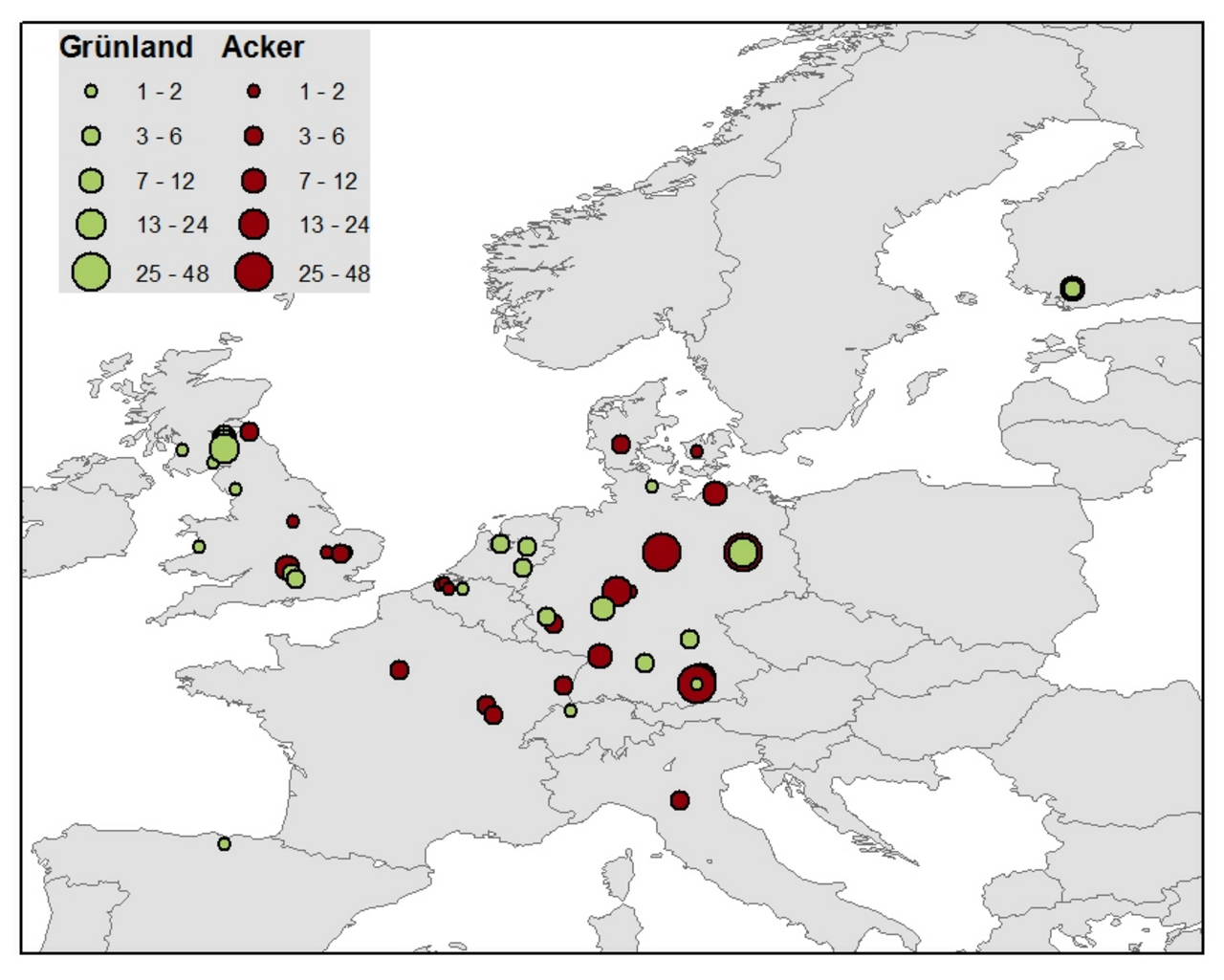Project
Quantifying Greenhouse Gas Mitigation Effectiveness through the GRA Croplands Greenhouse Gas Network (MAGGnet).

Agricultural soils are relevant sources of greenhouse gases. The international research network MAGGnet aims at improving models to predict greenhouse gas emissions from agricultural soils and to assess mitigation measures.
Background and Objective
The project MAGGnet will quantify greenhouse gas (GHG) mitigation potential of cropland management practices based on a recently developed database coordinated by the GRA Croplands Research Group. Specific objectives of the project include:
- Quantification of the effectiveness of specific mitigation practices (e.g., fertilizer type/rate, tillage, crop rotation, residue management, cover crop, livestock integration, etc.) for arable crops throughout the world using meta-analyses,
- Quantification of potential tradeoffs in GHG mitigation and crop yield,
- Identification of critical data gaps
- Facilitation of communication and cooperation among member countries in GRA Research Groups to improve predictive capabilities of process-based models.
Approach
A comprehensive database containing land use induced GHG emissions and relevant environmental conditions will be build up within the project. This data base will be based on a data collection within the Global Research Alliance on Agricultural Greenhouse Gases containing metadata of experiments on the effects of mitigation measures on greenhousegas emissions.
Validated data will be used in meta-analyses approaches to quantify the effectiveness of mitigation practices through appropiate statistical models.Examined cropland practices may include fertilizer rate/type, tillage, crop rotation, crop type, cover crop use, residue management, livestock integration and other management options depending on the data available. Within regionalisation studies developed statistcal models will help to quantify the mitigation effects of specific management options.
The expanded database will be made available to other GRA research groups all of which are involved in improving predictive capabilities of process based models used to predict carbon dioxide, nitrous oxide and methane emissions from land use.
Results
A comprehensive meta database containing field measurements of greenhouse gas emissions and related environmental conditions from agricultural areas around the globe was build up. The data might be used for further analyses of management effects on greenhouse gas fluxes from land use
Links and Downloads
Involved Thünen-Partners
Involved external Thünen-Partners
-
USDA-Agricultural Research Service
(Mandan, Vereinigte Staaten von Amerika) -
Università degli Studi di Sassari
(Sassari, Italien) -
Agroscope
(Reckenholz, Schweiz) -
MTT Agrifood Research
(Helsinki, Finnland) -
Universidad de Buenos Aires
(Buenos Aires, Argentinien)
Duration
1.2014 - 12.2016
More Information
Project status:
finished
Publications
- 0
Liebig MA, Franzluebbers A, Alvarez C, Chiesa TD, Lewczuk N, Piñeiro G, Posse G, Yahdjian L, Grace P, Machado Rodrigues Cabral O, Martin-Neto L, Aragão Ribeiro Rodrigues Rde, Amiro BD, Angers D, Hao X, Oelbermann M, Tenuta M, Munkholm LJ, Regina K, Dechow R, et al (2016) MAGGnet: An international network to foster mitigation of agricultural greenhouse gases. Carbon Manag 7(3-4):243-248, DOI:10.1080/17583004.2016.1180586

![[Translate to English:] [Translate to English:]](/media/_processed_/6/4/csm_titel_CO2Kampagne8_afeea2273e.png)
![[Translate to English:] [Translate to English:]](/media/_processed_/4/1/csm_titel_93px_CO2Kampagne8_9b0f3354d4.png)
![[Translate to English:] Logo des Bundesministerium für Ernährung und Landwirtschaft](/media/allgemein/logos/BMEL_Logo.svg)